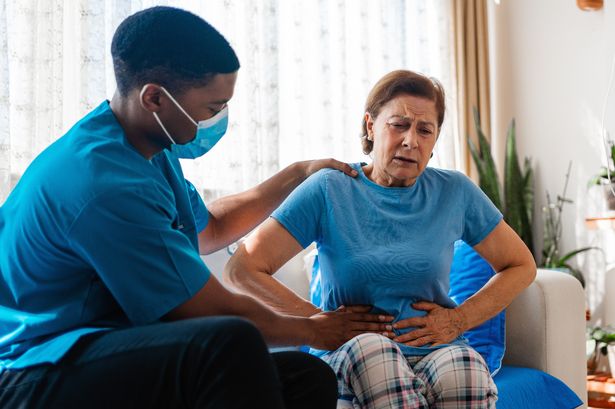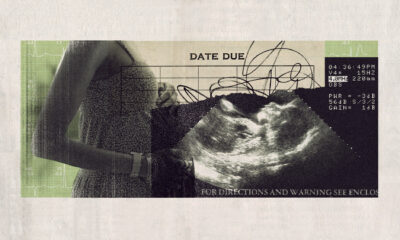Health
NHS Urges Screening for Bowel Cancer Among Older Adults

The National Health Service (NHS) in the United Kingdom has issued an urgent call for individuals born between 1951 and 1975 to participate in bowel cancer screening. The health service emphasizes the importance of not delaying this crucial test, which can detect early signs of bowel cancer before symptoms appear.
In a recent message shared on social media platform X, the NHS provided details about the bowel cancer screening kits distributed to eligible individuals. These kits allow individuals to collect a stool sample at home, which is then sent for analysis. The NHS stated, “The NHS bowel cancer screening kit can detect signs of cancer before you notice anything is wrong. If you’re sent a bowel cancer screening kit, put it by the loo. Don’t put it off.”
Understanding Bowel Cancer Risks
Bowel cancer ranks among the most prevalent cancers in the UK, with approximately 44,100 new cases reported each year, according to data from Cancer Research UK. This disease is responsible for around 16,800 deaths annually, making it the second most lethal cancer type. The significant danger of bowel cancer lies in its often asymptomatic early stages, which can delay diagnosis until the disease has progressed substantially.
The NHS explains that the screening process uses a test known as the faecal immunochemical test (FIT) to identify blood in stool samples. This can indicate the presence of bowel cancer. By detecting cancer early, the likelihood of successful treatment increases.
Currently, bowel cancer screening is available every two years to all individuals aged 50 to 74. The NHS notes that the risk of developing bowel cancer increases with age. Individuals aged 75 and older can also access screening every two years but must proactively request a test by contacting the bowel cancer screening helpline at 0800 707 6060.
Recent studies have indicated a rising trend in bowel cancer cases among individuals under 50. As a result, anyone, regardless of age, who experiences any symptoms should consult their general practitioner (GP) promptly.
How to Access Screening
Individuals aged 50 to 74 who are registered with a GP will automatically receive a bowel cancer screening home test kit (FIT kit) by post every two years. Those aged 75 or older can request a kit by calling the bowel cancer screening helpline. For individuals without a permanent home address, arrangements can be made to send the test kit to their GP surgery or another location.
If someone believes they qualify for bowel cancer screening but has not received an invitation or test kit, they can also reach out to the bowel cancer screening helpline for assistance.
Symptoms of bowel cancer can include changes in bowel habits, such as softer stools, diarrhoea, or constipation; blood in the stool that may appear red or black; unexplained weight loss; persistent abdominal pain; and fatigue or shortness of breath, which may indicate anaemia. Anyone experiencing bowel cancer symptoms lasting three weeks or more should seek medical advice from their GP.
The NHS continues to advocate for proactive health measures, urging individuals to prioritize their cancer screening and health check-ups. Early detection remains a critical factor in improving treatment outcomes for bowel cancer and other serious health conditions.
-

 Technology4 months ago
Technology4 months agoDiscover the Top 10 Calorie Counting Apps of 2025
-

 Health2 months ago
Health2 months agoBella Hadid Shares Health Update After Treatment for Lyme Disease
-

 Health3 months ago
Health3 months agoErin Bates Shares Recovery Update Following Sepsis Complications
-

 Technology3 weeks ago
Technology3 weeks agoDiscover 2025’s Top GPUs for Exceptional 4K Gaming Performance
-

 Technology2 months ago
Technology2 months agoElectric Moto Influencer Surronster Arrested in Tijuana
-

 Technology4 months ago
Technology4 months agoDiscover How to Reverse Image Search Using ChatGPT Effortlessly
-

 Technology4 months ago
Technology4 months agoMeta Initiates $60B AI Data Center Expansion, Starting in Ohio
-

 Technology4 months ago
Technology4 months agoRecovering a Suspended TikTok Account: A Step-by-Step Guide
-

 Health4 months ago
Health4 months agoTested: Rab Firewall Mountain Jacket Survives Harsh Conditions
-

 Lifestyle4 months ago
Lifestyle4 months agoBelton Family Reunites After Daughter Survives Hill Country Floods
-

 Technology3 months ago
Technology3 months agoUncovering the Top Five Most Challenging Motorcycles to Ride
-

 Technology4 weeks ago
Technology4 weeks agoDiscover the Best Wireless Earbuds for Every Lifestyle





















